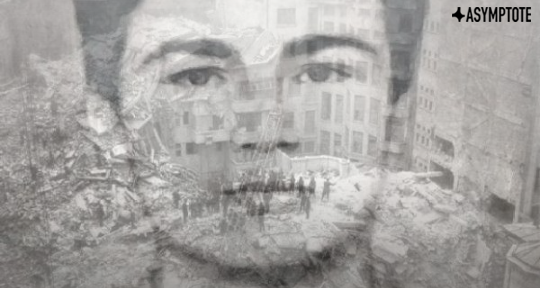In this week’s literary roundup from around the world, people in the literary community are both paying tribute to celebrated icons and paving paths for contemporary voices. From the Romanian diaspora, an exciting new publication threads the past and present, adding to an incredible legacy of literary journals. In the Philippines, book fairs are highlighting minority languages and independent publishers. In Croatia, new literary projects orient their local communities around the act of reading and writing, as well as making intellectual space to consider the role of the political novel.
MARGENTO, Editor-at-Large, reporting for the Romanian diaspora
One of the most significant recent events involving the Romanian diaspora was the debut release of the literary journal Littera Nova in Madrid, Spain, earlier this week. With an impressive range of established and emerging writers contributing literature both in original languages and in translation, alongside essays and criticism, the journal confidently joins a rich market as well as a solid and long-standing tradition. As the founding director Eugen Barz states in his prefatory note, previous frontrunners in the literary journal landscape include post-WWII Romanian periodicals published in metropoles as diverse as Paris, Madrid, Buenos Aires, and Honolulu, and edited by legends such as Mircea Eliade, Alexandru Busuioceanu, George Uscatescu, Stefan Baciu, Vintila Horia, and many others.
In the wake of iconic late-Romantic/early-modernist Eminescu’s 173rd birthday, the issue also includes a significant number of remarkable texts referring to the great classic: an erudite and incisive essay from Asymptote past contributor Felix Nicolau drawing parallels between Eminescu and both Shakespeare and Dimitrie Cantemir; poems translated into English by K.V. Twain; and a selection from the poet’s correspondence by Ovidiu Pecican. The journal deftly balances criticism and creative writing/translation, featuring classic modernists such as Lucian Blaga and Ion Pillat (translated into Italian by Stefan Damian and Bruno Rombi, and into French by Gabrielle Danoux), and Surrealist master—and past Asymptote contributor—Gellu Naum (in English translation from Nicoleta Craete), amongst others.
The Romanian diaspora continues to contribute significant texts and translations in platforms all around the world; for example, Asymptote contributor Diana Manole has recently had one of her plays featured in EastWest Literary Forum, released a collection of new and selected poems by revered Nora Iuga (co-translated with Adam J. Sorkin), and is gearing up for the release of her own forthcoming poetry collection in Canada. Also, major diasporic poet, novelist, and critic O. Nimigean, whose rare social media posts are at times almost as impactful as his best-selling books, reasserted on Facebook the continued relevance of the late paradigmatic fiction writer and anti-Ceaușescu militant Paul Goma (himself an epitome of both domestic and exilic heroic resistance), particularly as reflected by Flori Balanescu’s recent books on the subject. READ MORE…






